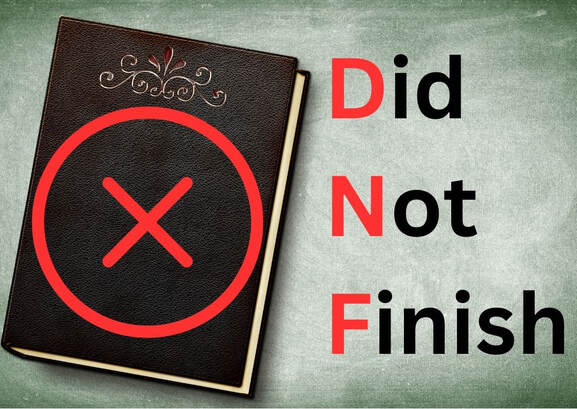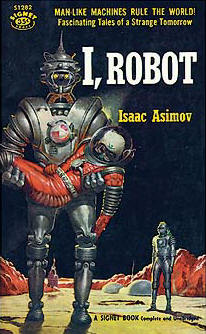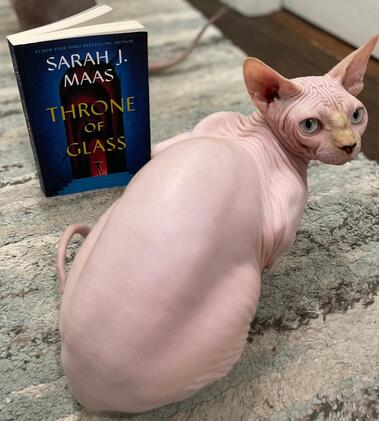|
Image made on Canva 2023 As promised last month, I'm going to share lessons from my first DNF (did not finish) of the year. And just in time for Halloween! Nothing scarier than a book full of promise falling flat on its face, right? I will not be naming the book, but to give context, it was on a list of best indie books of the year it was published, and the premise sounded fantastic. In fact, I'd hoped to use it as a backup comp to one of my novels. It's a self-published adult near future scifi, specifically biopunk. I stopped reading on page 120 out of 438 pages (27%). Rather than forget this and move on, I choose to take away lessons from books I didn't enjoy.
1. Choose Your Editor(s) Wisely If you're going indie, choose your editor or editors wisely. Some folks choose to forgo an editor, and that's your choice. However, if you pay someone to edit in any capacity (developmental, copyedit, line edit, etc.) make sure you choose someone who does a great job. Take advantage of offers to do a sample edit before you commit. If your novel is riddled with typos and plot holes, your readers will not stick around. 2. Don't Info Dump We all know not to do this, but in our own stories we always worry if the reader knows enough. Our beta readers might wonder about specific questions or ideas and we think we have to answer every one of them. However, if you info dump, your readers will know and will not be happy. We all need a certain amount of information to keep reading, but a trickle is better than a firehose to the face. Give enough to avoid confusion, hold back enough that they want more. We all do so much worldbuilding in the background, and it's tempting to shove everything in the novel, but remember the iceberg principle. Show enough worldbuilding to prove to the reader that there is much more below the surface--whether or not you actually wrote more below the surface doesn't matter. The book I DNF'd had such a giant info dump that I ended up skimming it--which is the beginning of the end for me when I read. 3. Avoid "As You Know, Bob" As you know Bob, or maid and butler dialog, is when two characters discuss something they both already know for the benefit of the reader/audience. This is made even worse when it's used to info dump. Your reader will know it's happening, they'll wonder why this conversation is happening, and they'll soon realize it's for them. That ruins the illusion of the reading experience. The book I put down had so much of this that I stopped trusting the author to tell me a good story. Maybe the plot was going somewhere interesting, but how the story is told is most of the battle. 4. Know Your Stuff If you're writing about something technical, let's say gene editing, you better be up on the latest developments. People who love scifi tend to also love science. Especially if you're doing a near-future setting, you need to know what's already happening. Otherwise, you end up sometimes creating an entire plot around science that's out of date, and your plot problems could be solved with science available right now. Your readers will know and will be annoyed. This was my biggest factor in putting down the book I DNF'd this time. It got science wrong that I did in grad school, and it was so wrong it made me cringe reading it. This lesson can be true outside of scifi too, for example people who know horse stuff will complain about horses written poorly in fantasy (there was a whole chapter about horses in Putting the Fact In Fantasy.) So if you include anything in your book that you don't know a lot about, be sure to do your research! Those are the big takeaways from the first book of 2023 that I didn't finish. What are some things that make you put a book down? Have you improved your writing by seeing what doesn't work? Let's discuss in the comments!
0 Comments
A retro cover of I, Robot depicting a scene from one of the stories within. Isaac Asimov is a famous mid-twentieth-century scifi writer of both novels and short stories. Aside from I, Robot, his most famous work is the Foundation series (which won the one-time Best All Time Series Hugo Award in 1966, kind of a big deal). He won many awards, and now some awards, magazines, and even robots are named for him. Most of his work includes robotics, and his three laws of robotics have been at the very least considered if not adapted by many who include robots in their own writing. If you're writing robots, cyborgs, or even AI in your scifi, you need to read iRobot. Plus, it's got some thriller and horror elements, and robots fit the Halloween vibe, right? So it's the perfect time to read it.
1) Just like Frankenstein, don't be afraid of a unique structure I, Robot, as it sits on a shelf today, is not how the contents were first presented. Now, it's a series of stories with an external story woven through that connected them all. Initially, these stories were published solo from 1940-1950. If all of the stories had been presented in chronological order with no external structure to guide me, I would have thought this was very choppy and didn't flow. The structure being handed to me up front made it easier to understand these were short stories stacked on each other in a trench coat. It may be a challenge to put together, but a unique structure could be just what your complex novel needs. 2) Play with your worldbuilding Each of the short stories delved into a different aspect of how the laws of robotics worked, or could inadvertently fail, and also included what was going on socially with how the world viewed robots. It was a really cool way to see how this world functioned and it was fun guessing at how the three laws of robotics would get messed up in each tale. If your story world has set laws (socially or physically), see how those laws interact, if they can fail, or if they can bend. Maybe your characters don't even understand the laws fully, so what they consider a rule is actually much more complex. Feel free to play and even write short stories about your world to get to know it more deeply. 3) Anticipate future social norms One thing I appreciated about I, Robot was that the main character, the robopsychologist being interviewed in the external structural storyline, was a woman. This was put together in 1950, and that character appears in the short stories too, so she wasn't just slapped in there for fun. While she was the only woman prominently featured as a scientist, she was so necessary. If I'd read this book and it had been all men in science despite the mid-to-late 2000s setting, I wouldn't have enjoyed it. If your writing is set in the future, think about how it will read in the future. Will that joke you made still be funny, or could it be harmful? (The gauge here is to "punch up, not down" i.e. make fun of the powerful not the people with equal or less power than you. Satire about the president: will probably age well; joke about the poor: no.) Will your inclusion of different genders (and think full spectrum here) be appreciated? Probably! So don't be afraid to think of the future socially just as much as technologically. (Though Asimov wrote a woman in STEM as a prominent character, note there were plenty of people reporting his sexual harassment of women during his lifetime. So, write as he wrote, but don't do as he did.) Those were my big writing takeaways from Isaac Asimov's I, Robot. If you're looking for the plot from 2004's I, Robot with Will Smith, you may end up disappointed. However, just think of that movie as another short story that would fit right in to the collection. It didn't surprise me that the Hollywood version was so different from the book, the same was true for Frankenstein! Have you read I, Robot or other Asimov novels and short stories? Have you learned any good writing lessons from him? Let's discuss in the comments! Wilbur loved to rub his face on this one, so I think he enjoyed it too. Photo by Kate Ota 2023 I know it’s hard to believe, but until recently I hadn’t read anything by Sarah J Maas, the bestselling author of the Throne of Glass series, the Crescent City series, and the NSFW fae series A Court of Thorns and Roses. This author first made a splash when I was trying to survive grad school and keeping up with reading trends fell off my radar. However, one of my close friends and fellow book lovers recently told me I’d love Throne of Glass, so trusting her judgement, I bought it.
What is Throne of Glass anyway? Isn’t SJM the fairy lady? Fairies feature in the distant past in Throne of Glass (book 1 out of 8 in the series). It focuses on (human) assassin Celaena, who is brought out of a labor camp prison to compete against a ton of other killers (not all assassins specifically) to become the King’s Champion. Win, and she gets a four-year contract and then freedom. Lose and she’s back at the labor camp where she’ll definitely die. Along the way she meets and has sizzling chemistry with the crown prince and the captain of the guard. However, as the competition progresses, dark secrets come to light. Does it live up to the hype? I picked it up on vacation (I’d been searching every indie bookstore at home and had never spotted it) and devoured it. It was exactly my jam: strong female protagonist, a little magic, some chemistry to keep things interesting, twists, and language that was invisible. I know some people read for deep turns of phrase to savor, but I want the words to fade away so I can watch the movie in my head. After a bad day at work, the day before I finished this book, I went to Barnes and Noble and bought the rest of the series at once. So, yeah, you could say I liked it. Things I didn’t like were few and far between. I mean, in any competition book, you pretty much know who’s going to win, right? So there wasn’t much tension there for me, but the other twists introduced along the way really helped. The other downside is I have no idea how to pronounce the name Chaol. Is it Cole? Kay-ole? Kale? Ch-ole? I’m going with Cole in my head. I read this on paperback, but if you read it on an e-reader, be advised the map is very detailed and you may not be able to read it. (However, you won’t really need it.) In conclusion, yes. It lives up to the hype. I’m already 200 pages into Crown of Midnight (book 2) and loving it! However, I’m going to try to read other books between entries in this series to better keep up with my goal of having 50% or more of the authors I read be from different backgrounds from mine. You’ll enjoy Throne of Glass if you like deadly competitions, magical secondary worlds, and badass female protagonists. It’s not for you if you’re looking for literary style fiction, high spice level romance, or a real-world setting. I liked reading such a popular book and deciding if it was actually that good, so I may do more posts about popular books and decide if they’re worth all the hype. Have you read Throne of Glass? What about other books by SJM? Do her other series live up to the hype? What hyped up book should I do next in this series of blog posts? Let’s discuss in the comments! The Space Needle. Photo by Kate Ota 2021 One week has gone by since the end of the PNWA (Pacific Northwest Writer's Association) conference in SeaTac, WA, and I'm ready to discuss my experience.
Overview The conference went from Thursday September 21st through mid-day Sunday September 24th. It all took place within a hotel by the Seattle-Tacoma airport. The conference offered some master classes (for extra cost), seminars on various topics, quick 20 minute discussions, pitch sessions (speed-dating style and 1:1), dinners with some infotainment, a raffle, and a movie night (for extra cost). There were 4 publishers and 7 agents who took pitches, and many published authors, both traditional and indie/self-published who presented. My experience Food/Hotel I stayed at the hotel holding the conference and packed all my own food because little about the conference indicated any food was included (dinners were, as well as one brunch). My hotel room had no microwave or fridge though, so this became an ordeal. However, I do recommend packing your own lunches (and breakfasts if the hotel doesn't offer it) because the pre-ordered food was extremely expensive and the traffic around the airport made getting to or from a restaurant a daunting task. Food that was included with the conference was decent, no complaints. Classes/Seminars I didn't pay for any master classes, so I can't confirm or deny their value. Most of the seminars I attended were a little too basic for me, but I'm sure were great info for others. I took notes and did write down some great nuggets of info. Though I will say the two sessions about prepping pitches (one how-to and one practicing with others) contradicted each other often. One class that everyone raved about, taught by Damon Suede, I missed for my pitch session. There was also a great class about mystery taught by an ex-spy. Many presenters had their books in a mini-Barnes and Noble, and they were all happy to sign books. (Excellent for gift shopping!) Pitches One pitch session came free with conference registration, and you could select ahead of time which of four sessions to attend. The pitch session itself was crowded and required standing in line to pitch to who you wanted. I was able to pitch three people, since I was first in the room. Many people only had time to pitch two. I found this more chaotic than the format I've had at other conferences, where all the pitches are 1:1 and scheduled every five minutes. Eventually, there were 1:1 pitch sessions, and I stumbled into a free slot (they were supposed to cost extra). This was much smoother and removed the stress of wondering if or when I'd be able to pitch who I wanted. I got four requests from my four total pitches! People Like my experiences at other conferences, meeting new people was the most valuable part. I worked hard to make sure to small talk with anyone I ended up around--in lines, waiting to pitch, at meals, between classes. Everywhere. I'm not an extrovert, but I pretty much just pretended to be one. I met writers in my area and connected with so many people I want to keep in contact with. This is the truly most valuable part of any conference. Is It Worth It? I'm going to answer this question in two ways. First: is a writing conference in general worth the cost? Look at a couple items: what does the cost of admission include (example: food, pitch sessions, contests, how many days, are any big names going to be there, etc.)? What does it not include (example: hotel--although there may be a room block discount, food, master classes or special events)? What is the cost of travel to get there? Do that math and then ask yourself if that price is worth the experience on offer plus the people you'll meet. Second: is PNWA specifically worth the cost? Registration: $425, since I am a member and registered early. ($575 for non-members by the time the early-bird pricing ended) Hotel: over $800 for four nights (I checked in the night before to avoid commuter traffic heading toward Seattle.) Food: $0 (packed it) Movie night: $30, it was very entertaining and honestly on par with the price of a theater. Free snacks. Extra pitch slots: $0, though I lucked my way into a free one. Books: $50 at the mini-Barnes and Noble and got one signed What I got: lots of good notes, four requests for pages, and invaluable connections to local writers who I never would have met otherwise. (Struggle with finding friends as an adult? Go to a conference for your hobby/passion and you'll make some!) So is PNWA worth the cost? Will I go again next year (assuming life doesn't throw a wild curveball)? Yes! *Caveat: I realize those are some high prices. Boy am I glad I have a nice day job! If those prices are not worth it to you, please note that all of the agents and most of the publishers who were at the conference take cold queries. Most of the classes were from people who also teach online or have a book version of their class for much cheaper. If you want to network with other writers in your area but can't afford a conference, check out what critique groups might be meeting, or what free or lower cost events might be hosted by groups like PNWA. Attending a conference is not a requirement to get published! Did you attend PNWA or another conference this year? Want to tell other people to come to your conference, or warn them away? Let's discuss in the comments! |
Archives
April 2024
Categories
All
|





 RSS Feed
RSS Feed